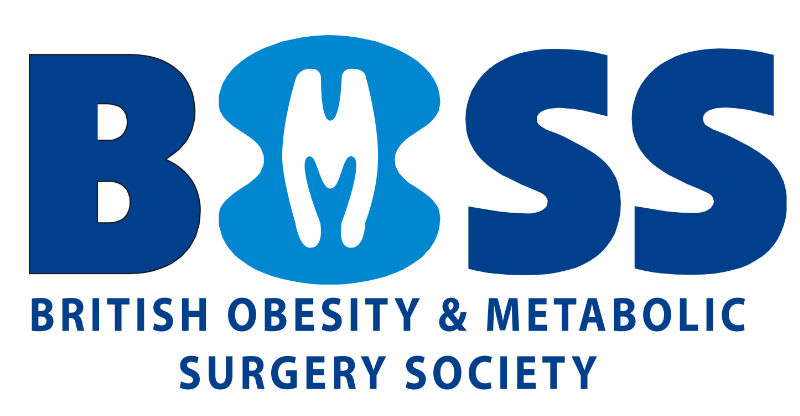The beginning of September has been a busy time for our political and NHS leaders. Lord Darzi’s report sets out his rapid assessment of the current state of the NHS, with a sobering analysis of the challenges our nation and health services face.
Within Lord Darzi’s report and also the wider media, obesity, rising rates of type 2 diabetes and substantial increases in the prevalence of people living with multiple long-term conditions are all noted. The report also highlights inequalities in access to care and loss of productivity due to treatable and avoidable ill health. Addressing these problems is clearly a complex and long term project. In the meantime, through your expertise and teamwork, you all deliver life changing quality of life and health improvements for those living with severe obesity in the UK.
We have been working to highlight the current status of impact of severe obesity and its treatment and would like to bring to your attention some of our activity and outputs that have been published in the last 10 days:
Severe obesity in the UK: a call for radical reshaping of services
Description of the current status of surgical and medical obesity treatment in the UK. Despite excellent and up to date NICE guidance, access to surgical and medical treatment has become more difficult with approximately 8,000 people on NHS waiting lists, and 10,000 traveling abroad for treatment each year. Prioritisation of activity could potentially deliver up to 20,000 surgical procedures per annum and would require clear guidance and direction from NHS England and ICBs.
https://publishing.rcseng.ac.uk/doi/10.1308/rcsbull.2024.108
The rising trend of health tourism in bariatric surgery
Drivers for health tourism and consequent negative impacts on the NHS are reviewed together with balance relating to tourism into the UK.
https://publishing.rcseng.ac.uk/doi/10.1308/rcsbull.2024.105
Assessing economic investment required to scale up bariatric surgery capacity in England: a health economic modelling analysis
This analysis outlines the costs of 3 different strategies to increase bariatric surgery activity to slightly, partially and fully address the current unmet need for bariatric surgery in the NHS in England. This analysis assumes between 5 and 10% of the eligible population may wish to proceed with bariatric surgery, altering this assumption up or downwards will clearly influence cost, and enable planning and costing into the long term.
How can the NHS offer a consistent bariatric service?
This Health Service Journal roundtable was hosted at the Kings Fund in London. This report outlines barriers to access, recent changes in clinical guidance, examples of ways in which capacity and activity may be effectively increased in the NHS and how investing in surgery possibly through re-prioritisation deliver longer term benefit. The event was funded by Johnson & Johnson, and organised by HSJ who wrote and published the report.
https://guides.hsj.co.uk/6239.guide
Obesity: Only half of England has access to comprehensive weight loss services
The BMJ reports wide variations in access to specialist weight management services, high levels of demand for services and lack of capacity through freedom of information requests to the 42 ICBS in the NHS. Of these just over half commission tier 3 and 4 services and are currently accepting new referrals.
https://www.bmj.com/content/386/bmj.q1950
if you haven’t already, we would encourage you to read and share the above as appropriate within your clinical teams and wider professional networks, to help facilitate a greater understanding of the current situation in relation to obesity, and how this could be improved to the benefit of the population we serve.
The NIHR BY-BAND-SLEEVE landmark study of bariatric surgery in clinical practice will be one of the most important publications to provide an evidential jigsaw that supports the case for bariatric surgery in the UK and beyond. Publication and strategic dissemination of this study, your collective work, will further inform patients, clinical practitioners, commissioners and the government of the clinical and cost effectiveness of this treatment in the NHS.
In the meantime we continue our work with Richard Sloggett of Future Health with next steps that aim to better inform commissioners and decision makers of potential models of fully integrated bariatric services and delivery.
We have become a great independent multidisciplinary society. You our members are our primary asset and have made us what we are today. Looking forwards, we are now planning for our ASM next year in Brighton, taking place from 16th – 18th June 2025, and will share with you our plans for this and also welcome your ideas on topics that are relevant to you and our patients.
With best wishes,
BOMSS Council of Management
James Byrne – BOMSS President
Ahmed Ahmed – BOMSS Secretary
Kamal Mahawar – BOMSS Treasurer
Omar Khan – BOMSS NBSR Committee Chair
Chris Pring – Patient Safety Committee Co-Chair
Dee Wainwright – Patient Safety Committee Co-Chair
Emily McBride – IHP Representative, Psychology
Vanessa Osborne – IHP Representative, Dietitian
Helen Parretti – IHP Representative, GP
Naiara Fernandez-Munoz – IHP Representative, Nurse
Altaf Awan – ALSGBI Representative
Nick Carter – ASM Lead
Kenneth Clare – PPI Lead
Ahmed Ghanem – Trainee Representative
Alex Miras – Medical Physician Lead
Aya Musbahi – EDI Lead
Dimitri Pournaras – Surgical Speciality Lead
Chetan Parmar – Educational Lead
Andrew Robertson – Consultant Surgeon Representative
